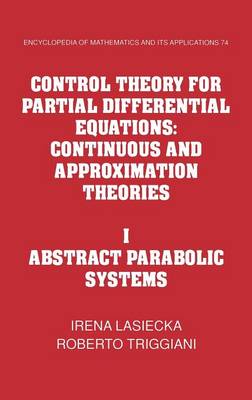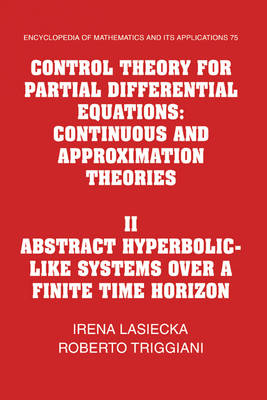Encyclopedia of Mathematics and its Applications
2 total works
Control Theory for Partial Differential Equations: Volume 1, Abstract Parabolic Systems
by Irena Lasiecka and Roberto Triggiani
Published 13 February 2000
Originally published in 2000, this is the first volume of a comprehensive two-volume treatment of quadratic optimal control theory for partial differential equations over a finite or infinite time horizon, and related differential (integral) and algebraic Riccati equations. Both continuous theory and numerical approximation theory are included. The authors use an abstract space, operator theoretic approach, which is based on semigroups methods, and which is unifying across a few basic classes of evolution. The various abstract frameworks are motivated by, and ultimately directed to, partial differential equations with boundary/point control. Volume 1 includes the abstract parabolic theory for the finite and infinite cases and corresponding PDE illustrations as well as various abstract hyperbolic settings in the finite case. It presents numerous fascinating results. These volumes will appeal to graduate students and researchers in pure and applied mathematics and theoretical engineering with an interest in optimal control problems.
Originally published in 2000, this is the second volume of a comprehensive two-volume treatment of quadratic optimal control theory for partial differential equations over a finite or infinite time horizon, and related differential (integral) and algebraic Riccati equations. Both continuous theory and numerical approximation theory are included. The authors use an abstract space, operator theoretic approach, which is based on semigroups methods, and which unifies across a few basic classes of evolution. The various abstract frameworks are motivated by, and ultimately directed to, partial differential equations with boundary/point control. Volume 2 is focused on the optimal control problem over a finite time interval for hyperbolic dynamical systems. A few abstract models are considered, each motivated by a particular canonical hyperbolic dynamics. It presents numerous fascinating results. These volumes will appeal to graduate students and researchers in pure and applied mathematics and theoretical engineering with an interest in optimal control problems.

